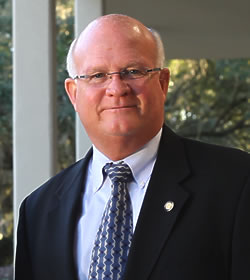Because I’m working on a post on John Bates’ response to the NSA Review Group recommendations, I happened to re-review the list of people the Review Group spoke with today (see page 277; Bates was the only one from the FISA Court they spoke with),
See if you find anything odd with this list of entities the Review Group spoke with from the Executive Branch (here’s a handy list of intelligence agencies to compare it to):
Assistant to the President for Homeland Security & Counterterrorism
Bureau of Alcohol, Tobacco, Firearms and Explosives
Central Intelligence Agency
Defense Intelligence Agency
Department of Commerce
Department of Defense
Department of Homeland Security
Department of Justice
Department of State
Drug Enforcement Agency
Federal Bureau of Investigations
National Archives and Records Administration
National Counterterrorism Center
National Institute for Standards and Technology
National Reconnaissance Office
National Security Advisor
National Security Agency
Office of the Director of National Intelligence
President’s Intelligence Advisory Board
Privacy and Civil Liberties Oversight Board
Program Manager for the Information Sharing Environment (PM-ISE)
Special Assistant to the President for Cyber Security
Treasury Department
Much of the list makes sense. You’ve got the people largely in charge of terrorism (NCTC, Lisa Monaco, FBI, Treasury), you’ve got some of the people in charge of cyber and/or corrupting encryption standards (DHS, Michael Daniel, NIST), you’ve got the people who have to deal with angry foreign leaders (State), you’ve got people in charge of data sharing and storage (PM-ISE and NARA), and you’ve got Commerce (which serves to boost, but also coerce, the tech companies on these issues).
There are some absences. I’m surprised Department of Energy, which plays a key role in counterproliferation, isn’t on here. It’s light on counterintelligence functions, both at DNI and things like AFOSI (which I believe has some nifty cybertools). I’m also a little surprised DOD was represented as a whole, but not some of the branch intelligence organizations. Similarly, DHS was represented as a whole, but not some of its relevant branches (TSA, CBP, and Secret Service).
And then there’s the Drug Enforcement Agency, which is on the list.
And even more alarmingly, the Bureau of Alcohol, Tobacco, Firearms and Explosives.
Don’t get me wrong, neither is all that surprising. We know some of the tools covered by the Review Group — notably National Security Letters — have actually been (mis)used in drug investigations as well as in terrorism ones. Given the logic of the certifications we know exist — not to mention the Administration’s fear-mongering and increasing focus on Transnational Crime Organizations not run by Jamie Dimon — I wouldn’t be surprised if Section 702 were used to fight the war on drugs, if it hasn’t already been. And the drug war certainly is a foreign intelligence priority for EO 12333 collection. Given NSA’s increasing inclusion of drug cartels in the boilerplate comments it releases about Snowden stories, I expect we’ll hear some nifty things about the war on drugs before this is out.
Similarly, one of the first things we learned the government was using Section 215 and/or NSLs to collect was purchase records for beauty supplies, otherwise known as explosives precursors. Since then, Members of Congress have talked about tracking fertilizer purchases. And I’d be shocked if there weren’t at least a half-hearted attempt to track pressure cooker purchases. I guess, from ATF’s inclusion among the Review Group’s interlocutors, we know a little bit about where this data resides: in probably the most fucked up law enforcement agency in government (though maybe that’s Immigration and Customs Enforcement, which thankfully was not considered central enough to talk to the Review Group).
Still, given the increasing number of signals that these authorities have been used to track gun purchases, and ATF’s notorious failures at tracking gun purchases in the past, I wonder whether they’re involved not just to talk about explosives purchases, but also gun records?
The Review Group warned that,
Like other agencies, there are situations in which NSA does and should provide support to the Department of Justice, the Department of Homeland Security, and other law enforcement entities. But it should not assume the lead for programs that are primarily domestic in nature.
For a variety of reasons (both reasonable and unreasonable), it is much harder to claim that tracking gun purchases pertains to counterterrorism or another foreign intelligence purpose than tracking acetone purchases.
Is this one of the domestic security functions the Review Group worried about?

